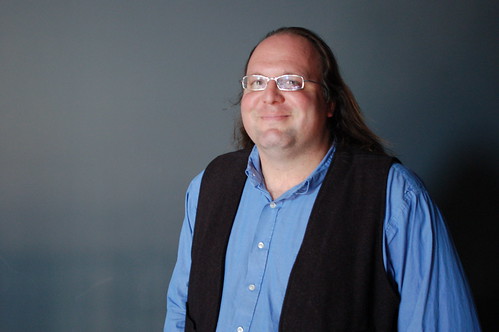
As the end of the first decade of the 21st century approaches--one kind of organizing theme that is going through my head at the moment is the gulf
that opened up more visibly than ever before --between the elites who basically run things and the rest of us.
Of course there have always been elites--and there has always been a gap between them--the question is why is the gap so wide today? The gulf started opening up quite rapidly after 9/11 when our President took the moment of great national unity and saw it as an opportunity to strike Iraq and "remake" the Middle East using the pretext of Iraq having WMD.
When shoddy evidence was used by Blair's government and by the bullied by VP Cheney and the CIA to justify the war was the result. The next major gulf was the refusal to acknowledge that fighting two wars would require fiscal restraint not fiscal excess--in the form of large tax give aways benefiting the rich and deregulated stock markets. A third issue was the inability by both governmental and corporate leaders to look beyond either the next election year or next quarter--in the case of the auto industry with near fatal consequences. Detroits' fatal attraction to SUVs led to systemic failure added and abetted by a government unable to provide leadership in the area of energy policy or health care which became a crushing burden on the big three's ability to compete overseas. President Obama's election promised to change all this--but there were a series of unexplained retreats from reality:
Despite his strong stand on the need to support middle class families-- Huge bailouts to banks and institutions like AIG that basically gambled away money they did not have without any consequences--while unemployment rose dramatically to the point where it is reaching 12% to 15% in many parts of the country.
Despite a pledge to end lobbyists control of the policy agendathe same big pharma control of the health care debate --see Dana Milbank's brilliant skewering in the Washington Post today of our representatives who should be wearing NASCAR like sponsorship badges.
Despite all the brave words on climate change --No hint of a gas tax or real possibility that we could do very much to reduce global warming through either a cap and trade bill or a treaty.
Meyerson points to the nub of the issue when he writes in today's Washington Post about the way that "America's economic elites.. thrived on the financialization and globalization of the economy that have caused the incomes of the vast majority of their fellow Americans to stagnate or decline. The insecurity that haunts their compatriots is alien to them. Fully 85 percent of Americans in that CFR-sponsored poll said that protecting U.S. jobs should be a top foreign policy priority, but when the pollsters asked that question of the council's own members, just 21 percent said that protecting American jobs should be a top concern."
The problem lies deeper than the failure of elites to understand the suffering of their fellow Americans--many have never bothered to recognize that the 21st century requires a differnt kind of understanding and politics from the 20th.
In the 20th it was still possible to argue that what was good for GM's balance sheet was good for the US and the world. We could also argue that elites and the rest of us benefited pretty uniformly from globalization in the 20th century. Elites have been slower to grasp that there are systematic adverse consequences to globalization in the 21st which can involve entire communities dependent on one kind of manufacturing from being decimated. They have been slow to realize that we need to expand rather than reduce the safety net as those at the top end of the income scale are disproportinately benefited. The consequences of globalization and global warming on emerging countries also has been less well understood. Instead the elites have played into the media's bias for focusing on issues that distract--hence the continued parade of misbehaving celebrities and wedge issues such as gay marriage and abortion.
It was amazing given all this that candidate Obama with his serious and nuanced message could break through the media fog and become President Obama. Now he needs all our help in assisting us all to realize that we all have to go to school concerning the key global issues. None of us can afford to duck our responsibilities to learn that simply changing lightbulbs or driving a hybrid or buying a green product will save the planet. We have to better understand who wins and who loses in the global talent race and why. We have to understand such things as why the current climate talks in Copenhagen are according to the latest AP report "deadlocked" and are being disrupted. See photograph at the top of this blog. In truth --we all have to ascend the steep learning curve if we are to become more successful in the next decade. That is our role and our mission should we choose to take it--we are all global educators now!






















